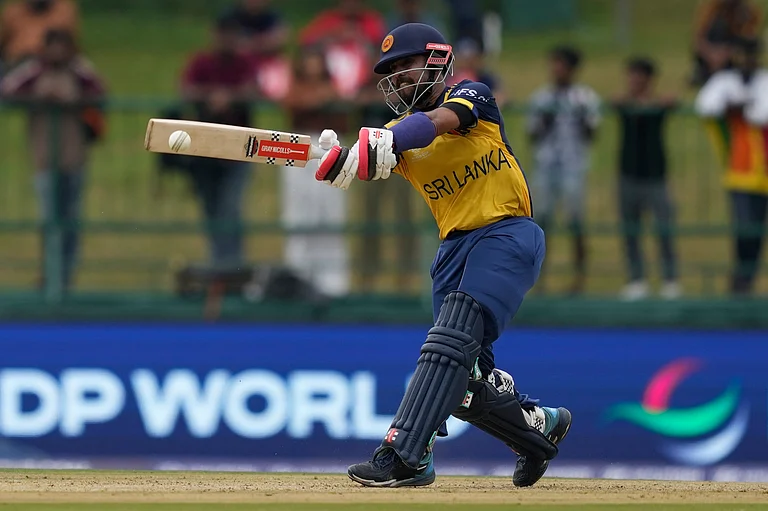Symbolism in Indian politics has always been a time-tested instrument. Be it an Adivasi or a Dalit President, the treatments allegedly meted out to them in the Hindu temples have hardly been different. The recent tweet of senior journalist and political commentator Dilip Mandal pertaining to the alleged denial of entry to the first Adivasi President Draupadi Murmu within the sanctum sanctorum of Jagannath temple at Delhi has further provoked the discussions.
In a tweet, sharing photos from the President’s visit to the temple on June 20, Mandal has written, “In the Jagannath temple of Delhi, Union Minister Dharmendra Pradhan is seen performing rituals inside and touching the idols. However, it is alarming that at the same temple, President Draupadi Murmu, the esteemed first citizen of the Indian Republic, was obliged to perform her prayers from the outside.”
The photos taken by news agency ANI show Murmu standing outside the holy sanctorum in folded hands whereas the Union Minister of Education and Skill Development Dharmendra Pradhan touching the feet of the idol. It was coincidentally the birthday of the President.
The tweet immediately evoked controversy and got more than 406K views and 1,400 retweets. The question over the claims of BJP’s inclusivity again came to the fore. Ashwini Kumar Pankaj, a Jharkhand-based Adivasi scholar, referring to the incident says, “It reflects on the Manuwadi mentality of BJP. The existing caste hierarchy among them is so embedded that even if she becomes the President of the country, she would not be allowed to enter the sanctum sanctorum.”
However, the temple authority, while exclusively talking to Outlook, has denied all the allegations. Though Outlook couldn’t reach the secretary of the temple Ravinder Pradhan, Abhimanyu Swain, the assistant manager, says, “Some people are trying to paint us in bad lights. The President came that day in early morning and it was her birthday. She herself didn’t want to enter that region. There was no discrimination.”
The Manager of the temple, nonetheless, passed the buck and asked Outlook to connect to the secretary who never responded.
Notably, BJP, since came to power has made a Dalit and an Adivasi woman President of the country consecutively. In June 2020, Home Minister Amit Shah tweeted, “There are 52 Dalit and 43 Adivasi MPs in BJP. More than 113 BJP MPs are from backward classes. Also, more than 150 Adivasi MLAs belong to BJP. It shows that Bharatiya Janata Party truly represents all sections of the society.”
This flexing of such inclusive attitude towards Adivasi and Dalits, however, had been questioned by the Opposition parties during the inauguration of the new Parliament building. While talking about such paradox, Pankaj says, “They wouldn’t let an Adivasi woman inaugurate the Parliament. This is against their Brahminical belief system.”
The Adivasi scholar, however, questions the controversy itself. “It may be possible that Murmu being an Adivasi didn’t want to touch the feet of the idol. Adivasis worship nature. May be, it is her decision only.”
While there is yet no statement from the President’s office or any other government officials, Mandal in his tweet has asked for an appropriate enquiry. Earlier, in 2018, news of President Ram Nath Kovind and his wife not being allowed within the premises of Puri’s Jagannath temple went viral. However, later the fake news was busted and the temple officials clarified saying it was due to President’s wife’s pain in the knee that she didn’t climb the stairs.
Last year, Murmu during Ratha Yatra visited the Jagannath temple of Odisha, her home state and willfully walked for 2 kms like any other devotee for darshan.



























